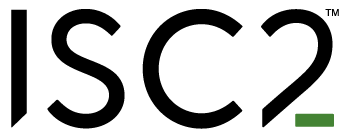Course Overview
The Systems Security Certified Practitioner (SSCP) course is a professional certification program offered by (ISC)², a renowned organization in the field of cybersecurity. The SSCP certification validates an individual’s technical knowledge and practical skills in various aspects of information security. It is particularly beneficial for individuals who are starting their careers in IT security or those who wish to enhance their existing knowledge and skills in the field.
The SSCP course is organized into seven domains, each focusing on a crucial area of cybersecurity. These domains are as follows:
- Access Controls: This domain covers the implementation and management of access controls to protect sensitive information and systems from unauthorized access.
- Security Operations and Administration: This domain emphasizes the operational aspects of security management. It encompasses areas such as security policies, procedures, and guidelines, security awareness and training, resource protection, and incident response.
- Risk Identification, Monitoring, and Analysis: This domain explores the process of identifying, assessing, and mitigating risks to information assets.
- Incident Response and Recovery: This domain focuses on the management and execution of incident response and recovery procedures.
- Cryptography: This domain delves into the principles and applications of cryptographic techniques to protect data confidentiality, integrity, and authenticity.
- Network and Communications Security: This domain addresses the security of network infrastructure, protocols, and communication channels.
- Systems and Application Security: This domain deals with securing systems, applications, and the software development lifecycle.
The SSCP course aims to equip learners with the necessary skills and knowledge to effectively secure organizational information assets. It emphasizes the confidentiality, integrity, and availability of data, which are essential aspects of information security.
By completing the SSCP course and earning the certification, individuals demonstrate their proficiency in the field of cybersecurity. The SSCP certification is highly regarded within the industry as a standard of excellence and can significantly enhance career prospects in various cybersecurity roles, such as security analyst, systems administrator, network administrator, or security consultant.
Target Audiance
- The target audience for Systems Security Certified Practitioner (SSCP) training are individuals who work in IT positions responsible for the management, implementation, and evaluation of information systems security best practices.
- This includes positions such as network administrators, system administrators, security officers, software developers, data center managers, IT auditors, and other IT professionals who focus on the security of information systems.
- The SSCP certification is respected and recognized by the IT industry and employers, and those who attain the certification reap the benefits of increased credibility, job security, knowledge and career advancement opportunities.
- The training provides students with the knowledge and skills to understand and apply the globally recognized information systems security practices that encompass access control, security operations, risk management, cryptography, business continuity, and legal, regulations, and investigation.
Schedule Dates
SSCP – Systems Security Certified Practitioner
SSCP – Systems Security Certified Practitioner
SSCP – Systems Security Certified Practitioner
SSCP – Systems Security Certified Practitioner
Course Content
- Implement and maintain authentication methods
- Support internetwork trust architectures
- Participate in the identity management lifecycle
- Implement access controls
- Comply with codes of ethics
- Understand security concepts
- Document, implement, and maintain functional security controls
- Participate in asset management
- Implement security controls and assess compliance
- Participate in change management
- Participate in security awareness and training
- Participate in physical security operations (e.g., data center assessment, badging)
- Understand the risk management process
- Perform security assessment activities
- Operate and maintain monitoring systems (e.g., continuous monitoring)
- Analyze monitoring results
- Support incident lifecycle
- Understand and support forensic investigations
- Understand and support Business Continuity Plan (BCP) and Disaster Recovery Plan (DRP) activities
- Understand fundamental concepts of cryptography
- Understand reasons and requirements for cryptography
- Understand and support secure protocols
- Understand Public Key Infrastructure (PKI) systems
- Understand and apply fundamental concepts of networking
- Understand network attacks and countermeasures (e.g., DDoS, man-in-the-middle, DNS poisoning)
- Manage network access controls
- Manage network security
- Operate and configure network-based security devices
- Operate and configure wireless technologies (e.g., bluetooth, NFC, WiFi)
- Identify and analyze malicious code and activity
- Implement and operate endpoint device security
- Operate and configure cloud security
- Operate and secure virtual environments
FAQs
To take the SSCP course, you should have at least one year of cumulative, paid full-time work experience in one or more of the seven domains of the SSCP. If you do not have the required experience, you can still take the course and obtain an Associate of (ISC)² designation after passing the SSCP exam.
It is also recommended that you have a basic understanding of computer networking and security concepts, as well as familiarity with operating systems such as Microsoft Windows, Unix, and Linux. You should also know basic programming concepts and scripting languages such as Python or PowerShell, as well as an understanding of web and database technologies.
The key learning objectives of the SSCP course are to provide learners with the knowledge and skills required to:
Understand the fundamental concepts of information security, including security architecture, principles, and models.
Implement and manage access controls to protect information assets.
Identify and manage security threats and vulnerabilities.
Implement and manage security operations and administration practices.
Understand and apply cryptography to protect information assets.
Secure network and communications infrastructure.
Implement and manage security for systems and applications.
Upon completion of the course, learners will have a comprehensive understanding of the key concepts, principles, and practices in the field of cybersecurity, as well as the skills and knowledge required to pass the SSCP certification exam.
The three essential components of system security are Confidentiality, Integrity, and Availability, collectively referred to as the CIA triad.
The SSCP certification is highly regarded in the cybersecurity industry and is recognized globally as a standard of excellence. The SSCP certification demonstrates to employers and colleagues that the candidate has the knowledge and skills required to implement effective security measures and mitigate security risks.
The SSCP certification can open doors to new opportunities and career advancement in the field of cybersecurity. This certification can provide candidates with credibility in the industry and shows that they are committed to continuous learning and professional development.

 4.7
4.7





